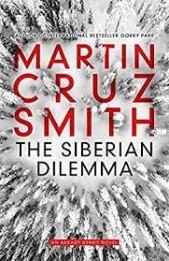
The Siberian Dilemma is the ninth of Martin Cruz Smith’s Arkady Renko novels, published nearly 40 years after the classic first in the series, Gorky Park (1981). Like the other more recent Renko novels, at least since Stalin’s Ghost (2007), The Siberian Dilemma is a relatively short, snappily written work.
It set me musing on two things in particular. It made me wonder what lies behind the shift amongst a number of long-established thriller writers from long and detailed to short and snappy? And, for entirely personal reasons, it reminded me of a meeting with the leader of the Russian Communist Party.
Reading The Siberian Dilemma made me wonder whether Martin Cruz Smith is simply delivering what his readers want these days, or whether it is just a matter of rattling off another novel because that is his job. In other words, have the days of the thick and complex thriller been left behind, maybe because the Netflix generation need something easier to read? Are publishers telling their authors to get on with it and write snappier works?
Whatever the case, I kept thinking of the difference between this book and Gorky Park¸ and the similar difference between Nelson DeMille’s A Quiet End (2015) and his early work, notably the quite brilliant The Charm School (1988).
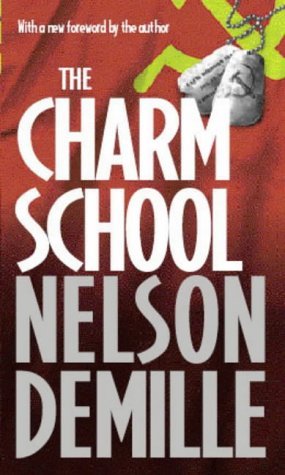
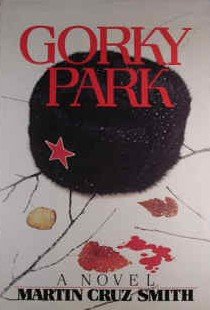
In both cases the earlier novels are far more literary, or —to put it in its most basic form— have more words doing more things; there is a lot more in the way of description, character development, scene-setting, and so on in these novels, both published in the 1980s. When significant events happen, they develop over a chapter or two. In the later, more contemporary works, major aspects of the plots happen in a page or two.
To give an example, in The Siberian Dilemma two of the central characters are involved in a helicopter crash. And this is no passing event of fleeting relevance to the plot, but rather a significant development without which the plot would have been entirely different. It comes out of the blue; I guess this is fair enough. But the whole thing is introduced and done with in about 180 lines of text. And many of these are just a few words in length:
“Where?”
“Ask the pilot.”
“He’s trying to…”
“Ask him!”
The siberian dilemma
And so on.
None of which is to say that this is a poor novel. It is an enjoyable and engaging read. Well-researched. And with the usual characters accompanied by some original new ones. I was particularly struck, in this iteration of detective Arkady Renko’s life, with his good-natured, alcohol-prone, and largely incompetent colleague Victor, since there is a very similar character in the excellent series of novels about a Russian detective, Natalya Ivanova, by G.D. Abson, Motherland (2017) and Black Wolf (2019).
The basic plot here is that an investigative journalist, who is Renko’s lover, does not return from a trip to Siberia. So Renko goes to investigate. Alongside this, we have his usual run-ins with his corrupt superiors in Moscow. It turns out that the missing journalist has been investigating corruption, particularly in relation to two oligarchs; one apparently a somewhat venal figure, the other a more sophisticated and enlightened type, with liberal leanings and a desire to undermine the Putin regime.
Martin Cruz Smith displays his usual penchant for basing characters on real life figures in recent Russian history —Tatiana, in the previous novel of that name, draws on the case of Anna Politkovskaya. In The Siberian Dilemma, the first oligarch figure goes by the name of Boris Benz and put me in mind of Boris Berezovsky, whereas the second goes by the name of Mikhail Kuznetsov, and has strong echoes of Mikhail Khodorkovsky.
The Siberian setting allows for some good research to be displayed —the features of Lake Baikal, the national groups in Siberia, Shamanistic practices and superstitions, and of course the brutal weather. All of these play their part in the fast-moving narrative.
There is even a reference from Dostoevsky that I had not read since I was an undergraduate
Right or wrong, it is very pleasant to break something from time to time.
Zapiski iz podpol’ya, part 1, chapter 9
One of my favourite elements of this novel struck me because of my own personal experience. During his quest, Arkady ends up in the Siberian city of Chita; a former ‘closed city’ during the Soviet era, when outsiders were not allowed to visit because of the military-related activity that went on there.
I spent a brief time in Chita in 1995. A year or so later, at an event at Chatham House in London, I happened to find myself seated next to the leader of the Russian Communist Party, Gennady Zyuganov, who had just fought a long and close-run presidential campaign, which he lost to Boris Yeltsin.

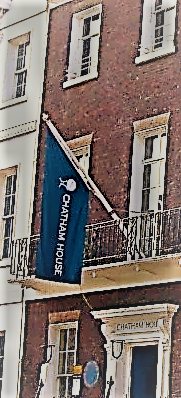
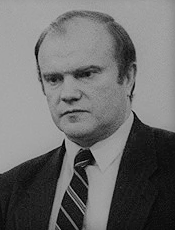
Making small talk, the conversation went something like this
‘You must have travelled a lot in the last year, campaigning all around Russia’.
‘Yes, I visited 88 of Russia’s 89 regions.’
‘Oh really. Which one didn’t you manage to get to?’
‘Chita oblast.’
‘That’s interesting. I was there recently, let me tell you about it …’
Anyway, back to The Siberian Dilemma. Though in fact there is not much more to say —Martin Cruz Smith’s ninth story in the Arkady Renko series is a pacey, well-researched, and entirely readable thriller.
But let’s be clear, it is no Gorky Park.